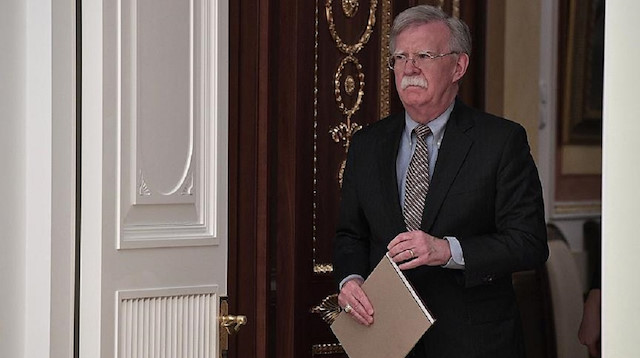
The U.S. national security adviser on Sunday warned of a "significant response" to any threat against U.S. diplomats in Venezuela or the country's self-declared president.
"Any violence and intimidation against U.S. diplomatic personnel, Venezuela’s democratic leader, Juan Guiado, or the National Assembly itself would represent a grave assault on the rule of law and will be met with a significant response," John Bolton said on Twitter.
He added: "Cuba’s support and control over Maduro’s security and paramilitary forces are well known".
Venezuela has been rocked by protests since Jan. 10 when President Nicholas Maduro was sworn in for a second term following a vote boycott by the opposition.
On Wednesday, Guaido, the leader of Venezuela’s opposition-led National Assembly, declared himself acting president, a move immediately supported by U.S. President Donald Trump.
Maduro quickly shot back, cutting off diplomatic relations with Washington and giving U.S. diplomats 72 hours to leave the country.
He has repeatedly lashed out at the U.S., saying Washington is waging an economic war against him and his government amid a sweeping sanctions campaign.
Brazil and the Organization of American States recognized Guaido as Venezuela's leader prior to his formal announcement. Argentina, Canada, Chile, Colombia, Costa Rica, Ecuador, Guatemala, Panama and Paraguay have followed suit while Bolivia and Mexico continue to recognize Maduro.
Several South American countries, Russia, Turkey, China and Iran have also expressed solidarity with Maduro.
European heavyweights -- including the U.K., Germany, France and Spain -- took a similar stance against Venezuela's elected president and called on Maduro to announce fresh elections within next eight days to ease the current political crisis in the south American nation.
















